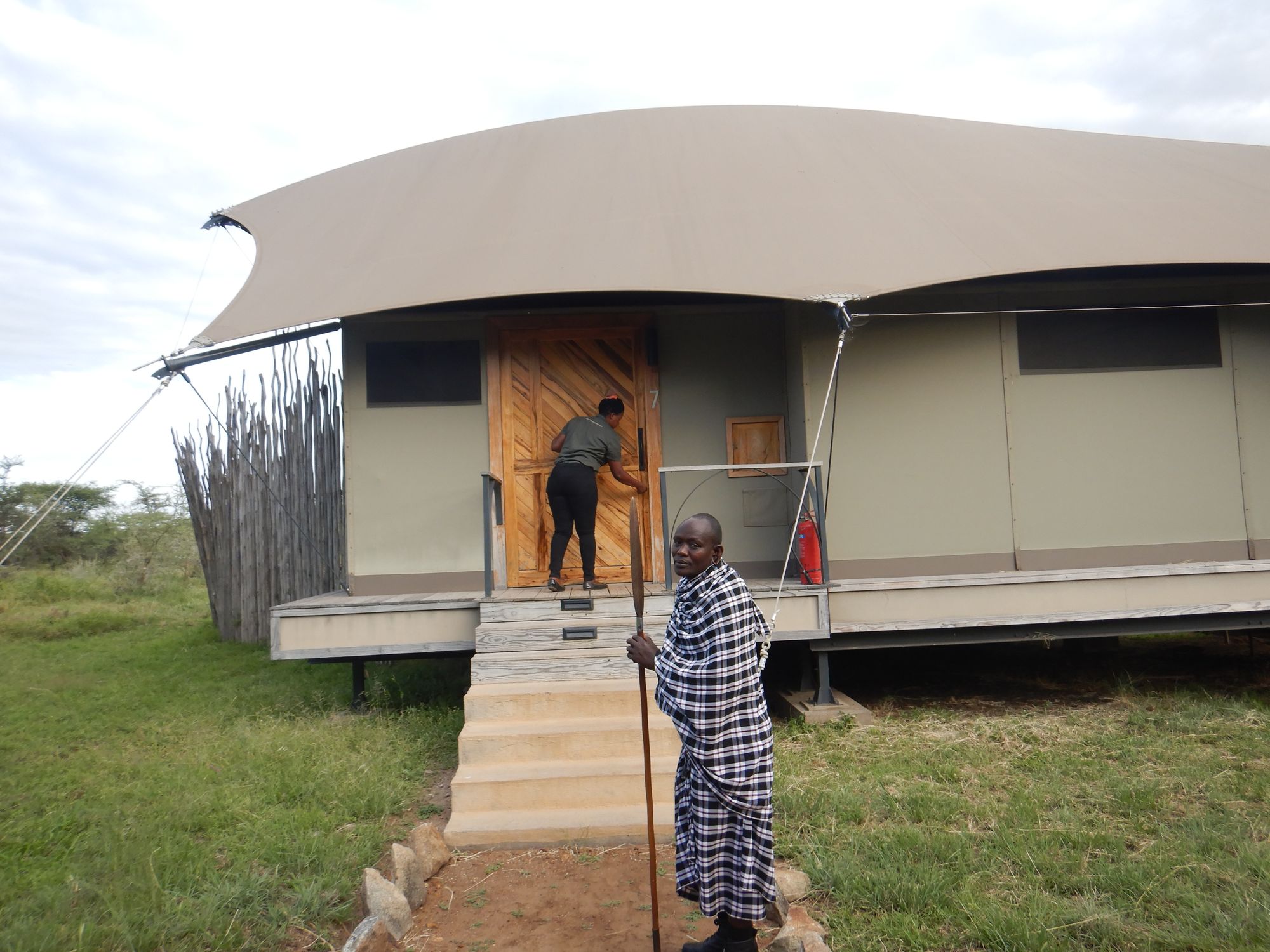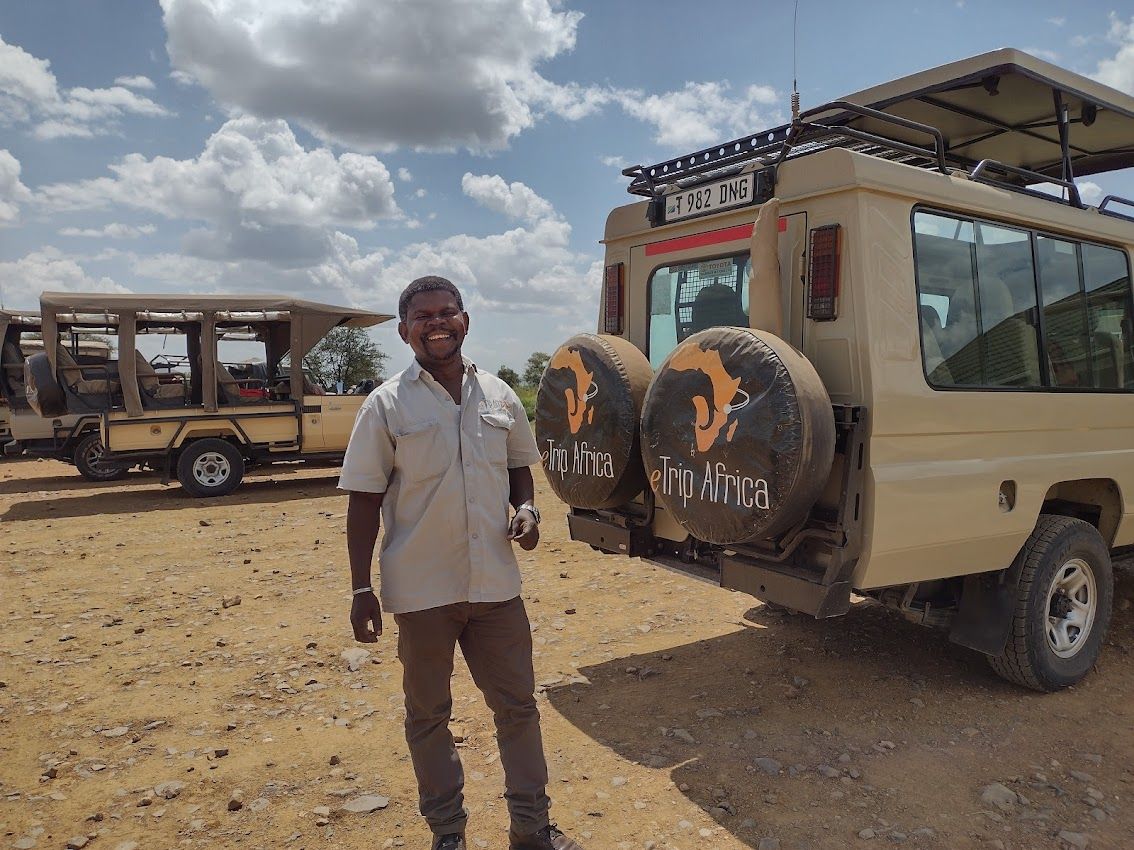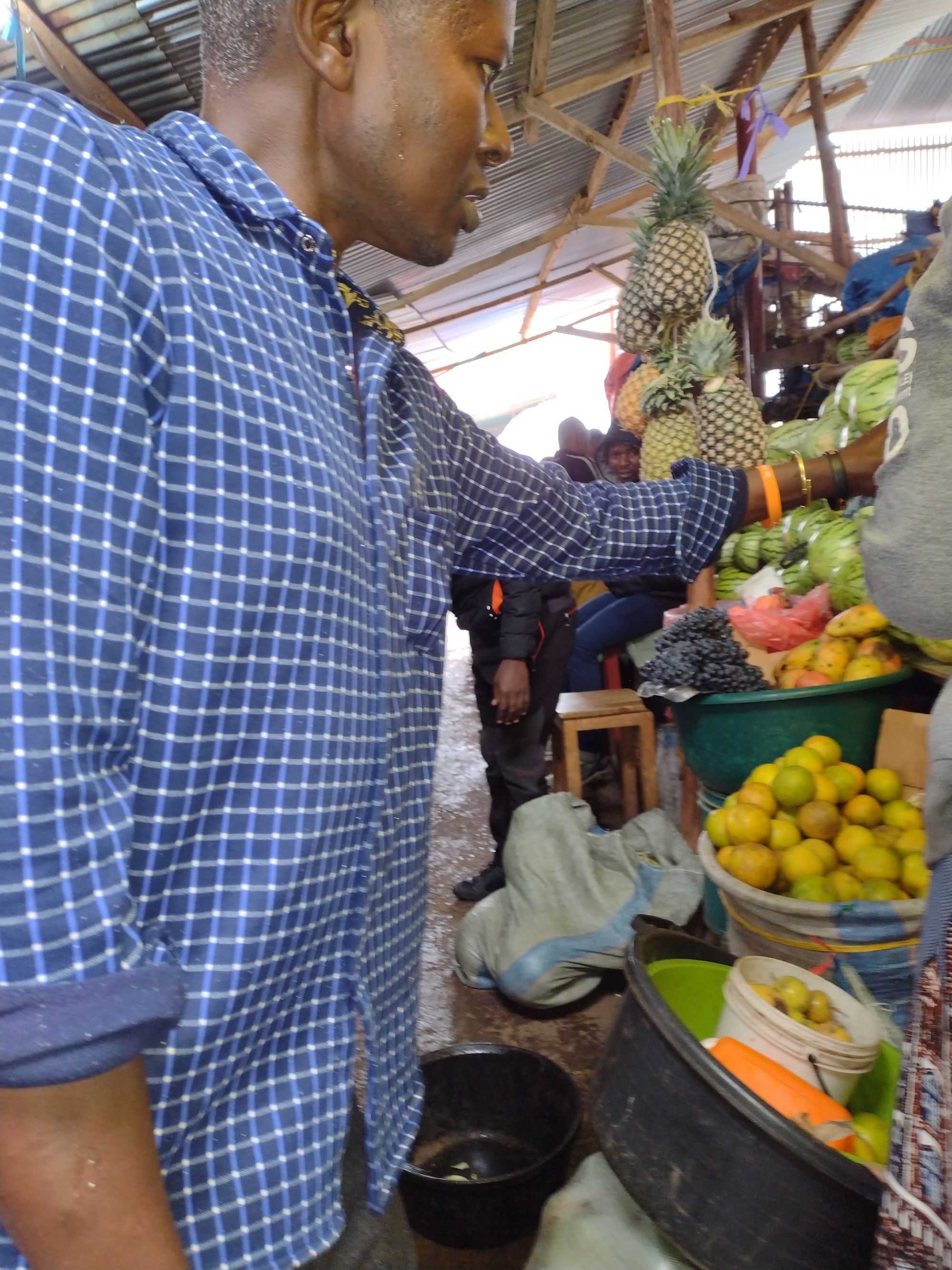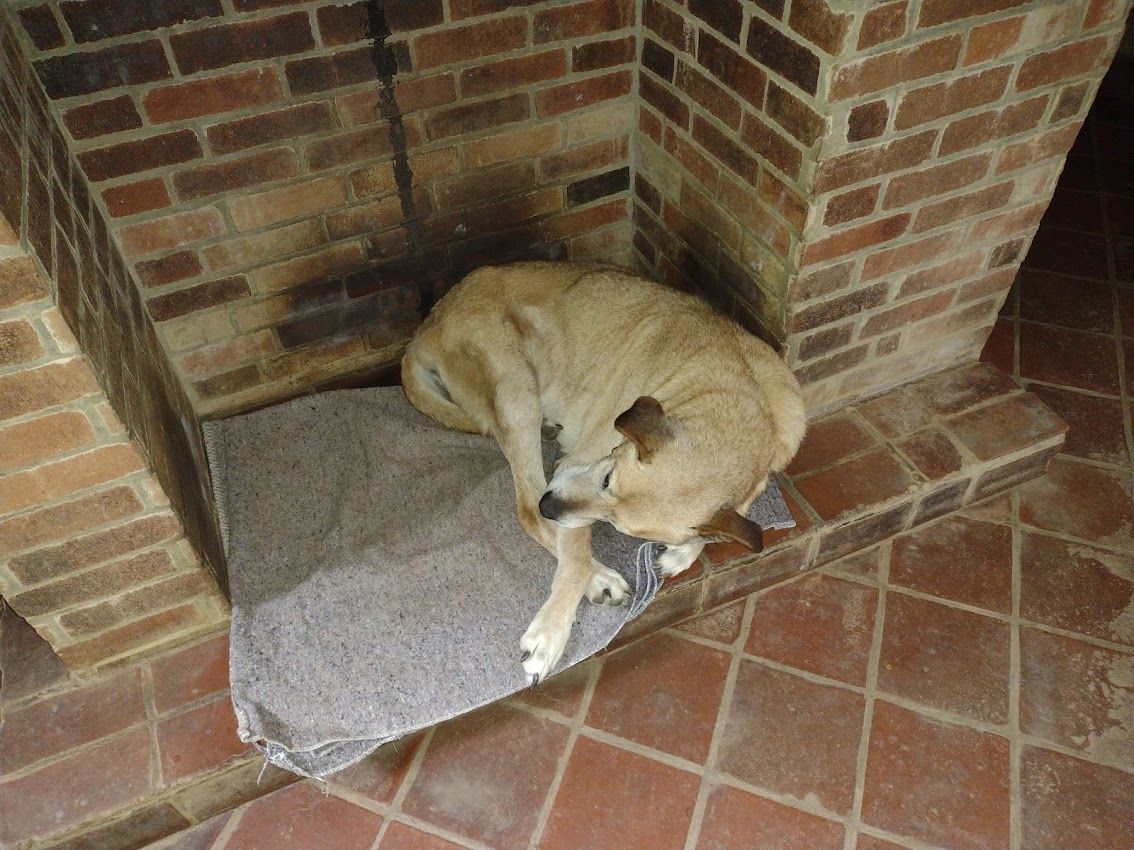
A quick snapshot or two from a day in the life from where I sit
Dear Saga Reader: A few of you wanted some insight into what's up over here and a window into daily life. I'll give you a few examples, and you can draw your own conclusions.
First, Africa, is, well, kinda big. Huge, actually. We Americans like to say Africa as though it's a country, when in fact it is so massive that we cannot comprehend the actual size of the continent. Then, each country is also huge in its own right, so that, as with America or Australia or Argentina, what is true in one spot is most certainly not true in another.
So answering the question what is it like, it's important to clarify. I am in Arusha, Tanzania, a city of two million and growing fast. I've taken trips to Moshi, about 90 minutes away, and out into the Serengeti, Tarangire and Ngorongoro Crater.
Life, as it were, for the people in each of those places is very different, depending on whether you are herding cattle, working for a hotel, barely surviving on the street or any number of other conditions, just as it's true for us in our own countries.
Since the tag end of May when a virulent cold grounded me for the last of my safari schedule, I've been staying in the upstairs of Researcher's Rest, a lovely old home in a part of Arusha which used to be a coffee plantation. I have been able to watch the comings and goings of the staff, whom I've known since 2013, and various guests, including two anthropologists whose work here has gone on for decades. Those conversations with researchers are among the most lively since I've been here.
However they are out researching, and the rain has put a stop to my local exploring for a few days. And I am catching up on my deadlines as I get ready to spend just a few precious days in Kenya, for that is my flight home. At least there's that.
Earlier today I asked for some content guidance, and got my first comments, for which I am always grateful and which, in fact, inspired this piece.
This is the request from Karen A:
You’ve talked about the various people who have made your trip so wonderful and safe. I’m wondering a bit about whether they are locals and live with their families in the same place or if they are living/working there on their own and any family lives elsewhere. Is it a mix? Has anyone shared that personal info with you? It seems some you know well from previous trips but I’m sure there are others that you’re meeting for the first time. Do they share with you or are they more reticent with personal info and casual conversation. I'm always interested in the personal lives of those I’m interacting with when they’re will to share.
To Karen's inquiry, the staff here at Researcher's Rest are all local. Their families are either from Arusha or originally from Moshi, ninety minutes away. So nobody has to leave their home and travel a great distance for work. As in many places, a great many folks moved here for the promise of work; whether or not that materialized is another story. I can say that there are many tribes and villages within a reasonable distance.
Those may well be some of the people who bring their wares to the Maasai Market, which I wrote about earlier on. The women who come and tend their stalls or who sit in the hot sun to entice the tourists with their beaded wares may well travel in, or live nearby. It's hard to tell, but fuel is so expensive now that if they do come in it's likely by foot.
For guides, however, that's different. While guides are paid more and tipped far better, they spend days away from their families whether taking people up the mountain or out into the bush, as Alladin does with me and other clients.

Since I arrived, Alladin and I were out about eight days. Then he went home for an extra several since I was ill, which was a bonus, but not for his paycheck. He told me- as many others have as well- that the family member who has the job has a great many visitors from other family members. This is a cultural phenomenon, and you cannot send them away. It's your responsibility to share the wealth, so the pressure on the working family member can be considerable.
If that family member works for a White person it's highly likely that the assumption is that s/he is raking it in, whether or not that's true.
Alladin took out another mother and daughter pair, just got back, I saw him again today, and in two more days he is back to take yet another couple out who just arrived this afternoon. Alladin's family is here in Arusha, but as he ages, he wants to build a small house in his ancestral village.
Out the bush, as above, deep in the Serengeti, my interactions were with locals. The companies employ and train people to work and run their concessions, from cooking to piloting the balloon trips. While I am not privy to whether or not anyone from farther away is brought in, for the most part I am interacting with people who live close by.
Here in Arusha, Helen, who cleans house here and has for two decades, has four girls (that story is coming later). The two oldest are in training in various aspects of medicine. Helen dedicated her life to getting those kids through school, and her job here at Researcher's Rest has been her lifeline as well as for her four girls.

Eddie, the chef and manager, at 47 has been here at Researcher's Rest the longest, outliving one of the original owners and continuing to learn how to manage this property in a changing world. He's the one who typically takes me out into the local market which is crazy town, and a White person there is quite rare. The market is an overwhelming place full of intense smells, from fish (which I can't stomach) to the most redolent spices stacked in pyramids on top of their bulging bags to sky-high stacks of fresh everything.
I LOVE going to that market but I wouldn't go without Eddie or Joseph, the other cook here at Researcher's. You need to know Swahili there, for it's the local's market. Rich Black folks here shop at the expensive supermarket where the produce is nowhere near as good but you can be seen, and if seen, assumed to have money enough to not NEED to shop at the far more lively, colorful local market.
Joseph, who works in the kitchen, is also a musician with a girlfriend and a child. He's also been here a while and is learning to cook. This entire staff has continued to work here even under Covid because Ben Jennings of eTrip Africa, my safari operator, was determined not to close this guest house and put all these people out of work.
Eddie picks through the lettuce, the mangoes and everything else and good- naturedly negotiates the price. Invariably young men touch my shoulder for attention or poke me in the back trying to get me to buy oranges or tangerines. To be White in this environment isn't just to be seen as moneyed, it's to be seen as a savior in the economic sense, so everyone wants to talk to you and get you to give them money. That was really affected by Covid, which is affected by The Great Denial the government holds forth that Tanzania was not affected whatsoever. Or that its own leader died of it; they hold forth he had a heart condition.
That of course is a co-morbidity, but as with South Africa, the denial of HIV Aids also cost that country's government a great many leaders until the reality finally sank in. Covid's impact, whether or not Tanzania suffered from it, continues to have a huge effect especially when tourism plummeted.
Under Covid, Eddie and his wife started a small baking business, only to be accused by the Federal Government of using their personal car as a transport vehicle, which meant an extraordinary tax burden. The Feds wanted them to pay massive back taxes all the way back to when they bought the car, despite the fact that this tiny business arose, like many, due to the desperation of Covid. I will refrain from further comment but you can imagine my opinion. And Eddie's for that matter.
The Fed put great pressure on its own employees to find highly creative ways to fill the coffers with taxes when the tourist VAT plummeted, and my guess is that those efforts, legal or not torpedoed a great many people who were already in terrible trouble.
Everyday life goes on for everyone, and the only masks I've seen around here are worn by White travelers. I wear mine only on airplanes, but make no mistake Covid came, it killed, and continues to hover despite the denial at the very top, which, as with the USA, created a wet blanket over any kind of reasonable discussion. To that, the anthropologists who are studying here have been warned not to speak to the Maasai about Covid, write about it or try to get anyone to speak about it on the record.
That should also give you a good idea about daily life. Unemployment in these countries is a terrible problem, and far too many young men are standing around, listless, with nothing to do but be angry for good reason. Those are the people most ripe for radicalization, as in all countries where unemployment and a dim future frustrate perfectly capable people who want to work.
It is just six thirty here and I have some deadlines, and the day is beginning to dawn. Outside the trees are outlined against scudding clouds and the local churches are gearing up the megaphones to energize the faithful. Another day begins in Arusha, it's cool, and first things first, I need to go out and tend to aging George.

Comments powered by Talkyard.